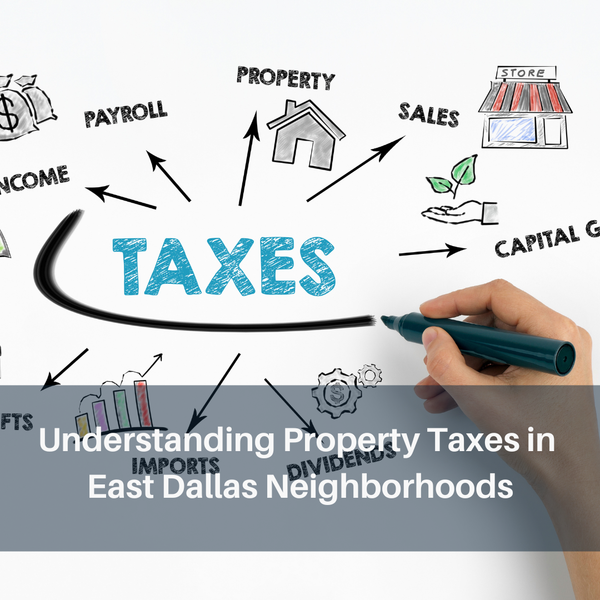Navigating Property Taxes: Tips for East Dallas Homeowners

Understanding property taxes can be a daunting task, particularly for homeowners in East Dallas, where the real estate market is as dynamic as the vibrant communities that thrive within it. As a homeowner, it's essential to grasp how property taxes work, what to expect, and how to manage your financial obligations effectively. With a little knowledge and a proactive approach, you can navigate the complexities of property taxes and make informed decisions that benefit your financial well-being.
First and foremost, it’s important to know how property taxes are calculated in East Dallas. Property taxes are assessed based on the appraised value of your home, which is determined by the Dallas Central Appraisal District (DCAD). This appraisal takes into account various factors, including your home’s size, location, condition, and the sale prices of comparable homes in the area. As property values in East Dallas have seen significant fluctuations, keeping an eye on market trends is crucial. Staying informed about your neighborhood’s real estate activity can help you understand the potential impact on your property taxes.
Once you receive your property tax bill, it’s beneficial to review it carefully. Familiarize yourself with the different components of the bill, including the tax rate set by local authorities and any exemptions for which you may qualify. For example, many homeowners in East Dallas can benefit from the homestead exemption, which can reduce the taxable value of your home. This exemption is especially valuable for first-time homebuyers, seniors, and disabled individuals. If you haven’t already applied for this exemption, make it a priority to do so; it could lead to significant savings.
If you believe that your property has been overvalued or that there are inaccuracies in your assessment, you have the right to challenge it. The process involves filing a protest with the DCAD, typically between May 15 and June 1 each year. To strengthen your case, gather evidence such as recent sales data for comparable properties, photographs of your home, and any relevant documentation that supports your claim. Engaging with a local property tax consultant or attorney can also provide valuable insights and strategies to help you navigate this process.
Beyond contesting assessments, East Dallas homeowners can also explore ways to manage their property taxes proactively. One effective strategy is to set aside funds each month specifically for property taxes, helping to avoid any surprises when the bill arrives. Budgeting for future tax increases, especially in a rapidly growing area like East Dallas, can ease financial strain and ensure that you are prepared for changes in your tax obligations.
Moreover, staying engaged with local government and community organizations can provide further insights into property tax trends and potential changes in legislation. Attend city council meetings or join local homeowner associations to voice your concerns and stay informed about upcoming developments that could affect property taxes. Being an active participant in your community not only empowers you but also helps foster a sense of connection with your neighbors.
In conclusion, navigating property taxes as a homeowner in East Dallas requires a combination of knowledge, vigilance, and proactive management. By understanding how property taxes are calculated, reviewing your assessments, exploring available exemptions, and staying engaged with your local community, you can effectively manage this important aspect of homeownership. While property taxes may be an unavoidable part of owning a home, with the right strategies in place, you can ensure that they remain manageable and that you continue to enjoy the benefits of living in one of Dallas's most vibrant neighborhoods.
Recent Posts










